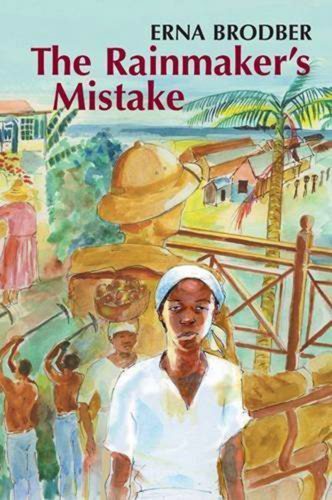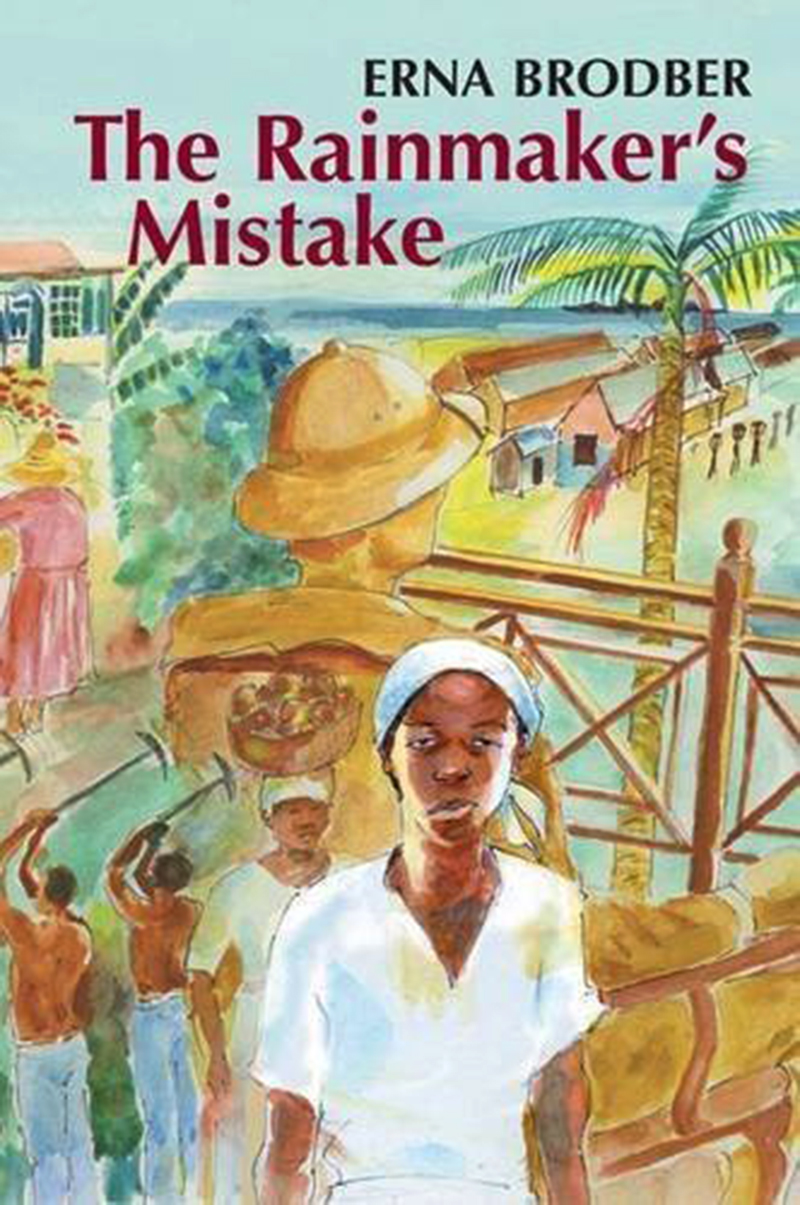 Today is Emancipation Day, and millions of Afro-Caribbean people within the Region and across the diaspora will be celebrating the abolition of slavery across the British Empire. We have come a far way since this first Emancipation Day, but there are still many ingrained colonialist systems and thought processes that we are battling to overcome today.
Today is Emancipation Day, and millions of Afro-Caribbean people within the Region and across the diaspora will be celebrating the abolition of slavery across the British Empire. We have come a far way since this first Emancipation Day, but there are still many ingrained colonialist systems and thought processes that we are battling to overcome today.
While there are many books, both fiction and non-fiction, that detail the horrors of slavery, I wanted to focus on a post-emancipation narrative from within the Region for this month’s review. Emancipation was not clean and easy, and many of the newly liberated found themselves facing entirely new struggles, or systems that were just thinly disguised plantation throwbacks.
So, for my August reading, I have chosen The Rainmaker’s Mistake by Erna Brodber. Although this is a slim volume, Brodber’s use of speculative elements makes this story richly dense, and in an abstract way she shows how the emancipated struggle to uncover the truth of their histories, while simultaneously trying to hold onto their individual and communal identities as the world changes rapidly around them.
“…Founder’s Day is our day to celebrate [Mr Charlie] lifting us from beneath the earth and placing us on top of the earth to realise our creativity. ‘Look at what I have brought you here to build’, he adds. Clearly, this section of the programme is about appreciation and not just of Woodville, but also of us. With our new cloth rolled up like mats, we dig into the animals prepared in appreciation of us.” -p.6
The Rainmaker’s Mistake opens with a story within a story, recounted by a five-year-old girl named Queenie. In the beginning, she says, plantation owner Mr Charlie was granted a patent on a thousand acres of land. He tried and failed to work the land by himself and decided that he needed labour. He makes himself a workforce by ejaculating into holes in the earth. These holes grow yams, which he reaps at various stages to create babies, children, teenagers, and adults, all of whom are assigned various tasks throughout the plantation according to their age set. He also has an overseer, called Woodville, who helps him to manage the plantation.

However, when Queenie and her age mates are just one year shy of entering the pickney gang, one of the adults – a woman named I-sis – gives birth to a pale-skinned, non-yam baby named Sallywater, which seems to upset Woodville. Soon after, Mr Charlie summons the pre-pickney gang children and declares that it is 1834 and they are free. Confused, they wait under Mr Charlie’s veranda for further instructions. Later, Mr Charlie returns, summons those who are over six, and makes a similar declaration: it’s 1838 and everyone on the plantation is now free. Emancipation and the non-yam baby reveal enrage Woodville. While the plantation workers struggle to find out what ‘free’ means and how it will affect their yearly routine, Woodville starts yelling accusations at Mr Charlie, which no one seems to understand. When he overhears one of the final questions, he starts to laugh so hard, that he makes a tornado that uproots Mr Charlie’s great house and sends it flying away with him still inside.
In the confusion that follows, the group of plantation workers splits and so does the land. I-sis and her non-yam baby go one way and Woodville goes another. The rest of the population settles between them on a newly formed island they call Cabarita. “The Future” and “The Norm” lie in front of Cabarita island, and “The Past” lays behind it. The adults take land from The Past to extend the island and to make homes and farms to sustain themselves, and to trade with people from The Future. Life is peaceful for them, and they are thriving in their independence, even though they still maintain a plantation like work segregation and organisation, and still long for Mr Charlie’s return.
Then things start to go wrong. Queenie goes over to I-sis’ plot of land and discovers a startling truth: an entire century has passed on the island and neither she nor the other islanders have aged, while I-sis is long dead, and Sallywater is now an old woman on death’s door. Things escalate further when a decrepit Woodville washes up on the island, and begins digging into the islanders’ time, forcing them to age and grow in ways they had never before.
Curious about why this is happening, Queenie sets off to the Future to study and find answers, while her brothers – Essex and Little Congo – set up farms in The Past and on Woodville’s place to help support the community. Together, these three start to uncover the truth about themselves, Mr Charlie, and the Cabarita islanders, while also navigating resistance from their elders.
Post-Emancipation Stagnation
“It is a fact of life that hardworking people become their work.”- p. 40
There are so many themes that Brodber explores throughout this novella, but one of the most important is the way the plantation system conditions the older inhabitants of Cabarita island, leading to a century-long stagnation. Mr Charlie’s plantation system rigidly divided labour according to one’s age-set. Since the people on the island don’t age, they may have been doing the same task for well over a century by the time they were finally freed. After their emancipation, because of this robotic, infinite repetition of tasks, all they can do is keep on maintaining a plantation-like system of living and thinking, even when confronted with other problems. In doing so, Brodber shows how dehumanising the plantation system really was. She doesn’t focus on the brutality of it, but rather on the way continued repetitive tasks with no space for personal creativity helps to stagnate generations of the newly emancipated.
However, the people who break away from this stagnation are the youngest of the Cabarita islanders: Queenie and her agemates. Queenie, Essex, Little Congo, and Jupiter break away from their elders and journey into The Future, The Norm and The Past. Using their childhood curiosity, they begin to learn about the world and to bring back both knowledge and remittances in food and money. Queenie notably gets medical and archaeological degrees so that she could investigate their living bodies, and the bodies and artifacts left behind by their few dead to figure out the truth of their bodies and their history.
Sadly, we see that some of her elders resist her probing, particularly one man named London. London seems upset that Queenie refuses to stop investigating the mystery of their immortality. He is upset with Jupiter as well once he goes off to have his own experiences in the future to solve his own personal problems. According to him, he was satisfied with not thinking and having to make decisions for himself or anyone else, and he thinks that others should be happy with the simplicity of the by-gone systems. It is truly uncomfortable to see London seeming to revel in his own stagnation.
Catching up with the world or foreign interference?
Another fascinating issue in the book is the effect Woodville’s return has on the islanders. Woodville acts as a catalyst for two things. Firstly, he forces the islanders into a future that they are not ready for. Secondly, he starts a wave of migration and remigration among the youth.
Woodville’s presence mysteriously forces the islanders to age, and in turn nudges them into a maturity they are not prepared for and forces them to acknowledge the existence of systems they cannot properly navigate. London is the person responsible for selling the islander’s surplus goods in The Future. Once, he came back and reported that children go to school in The Future, and therefore he says that the Cabarita islanders have to go to school, too. But, to enter school, you need a birth certificate. To get a birth certificate, you need Mr Charlie’s signature, since he is the “Father” of all the islanders. But Mr Charlie is gone, so the children must sit and stagnate on the island. In summary, they are educationally disadvantaged by a legal and record-keeping system that they do not understand because of their isolation and immortality.
The elders try to navigate these systems on the island themselves, but the youngest islanders feel the need to migrate and go investigate The Past, The Future and The Norm. In doing so, they learn how to navigate these systems better than their elders and can support their fellow islanders with their remittances. Queenie and Essex even collaborate in one of these foreign spaces to piece together the truth of their bodies and their past to solve the mystery of their immortality.
Criticism
While I loved this book and its portrayal of how the legacy of the plantation system led to stagnation in the Caribbean, I have one criticism. I was very confused by the final two chapters of the book and had to do some external research to understand it. On Episode 4 of the SF Crossing the Gulf podcast, hosted by Karen Lord and Karen Burnham, I made a surprising discovery. The Rainmaker’s Mistake was more than a Caribbean post-emancipation narrative. It was actually science fiction. This book is Brodber’s way of mocking the re-write of history that has been floating around by people who deny the brutality of slavery and the plantation system. She shows that even if there were an “ideal” and “kind” plantation environment, where slaves are apparently happy and content and cared for by “benevolent” masters and overseers, they are still a commodity for someone else and their conditioning ultimately denies the part of their humanity steeped in culture and community.
While this revelation helped me understand and love the book more, the ending still felt rushed and jumbled, and I do believe that it could have been a bit smoother. However, if it was Brodber’s intention was to force her readers to do several re-reads, then she was very successful indeed.
Conclusion
I enjoyed The Rainmaker’s Mistake. It made me hungry for more of these post-emancipation narratives that show that the abolition of slavery wasn’t an automatic cultural and social reset. While I initially felt some dissonance and felt personally uncomfortable reading the portrayal of the Cabarita islanders and their social and economic stagnation, by the end of the book I understood Brodber’s message. The plantation system’s conditioning was an insidious way of decimating people’s cultures, personalities and creativity, and those who champion the belief that it could be somehow humane and safe completely overlook how it obliterates people’s dignity and humanity.
Freed Black people still had to struggle hard to break out of the plantation-like system that they were conditioned into, both physically and mentally. Generations later, we are still not completely free of slavery’s legacy. But, as Brodber shows, there is hope in young people, particularly those who are both curious enough to find out their personal and communal truths, and who are willing to continuously challenge the systems trying to keep them in that plantation state of mind. This, I think, is an ongoing form of post-emancipation resistance that will follow us into many future Emancipation Days.
I want to give special thanks to Karen Lord, who pointed me toward Episode 4 of the SF Crossing the Gulf Podcast. This review would not have been possible without the analyses and explanations presented in her joint analysis with Karen Burnham.
Want to read more books about slavery, emancipation and thereafter? Try
- The Underground Railroad by Colson Whitehead
- Homegoing by Yaa Gyasi
- 12 Years a Slave by Solomon Northup
- Wild Seed by Octavia E. Butler
- An Unkindness of Ghosts by Rivers Solomon







